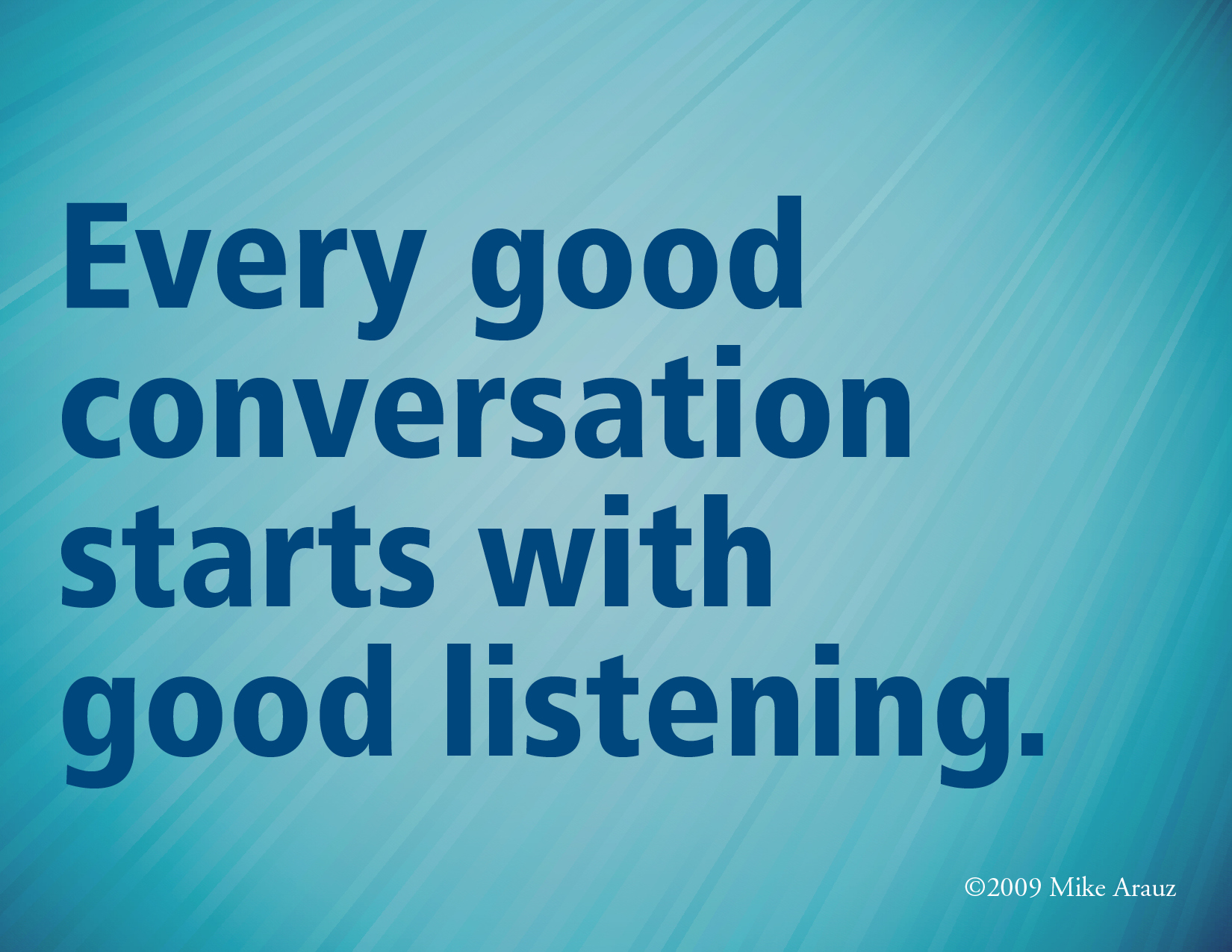Here is a quick introduction to the topic of listening:
 |
| (source: http://erinsumm.com/ mindset-monday-a-lesson-in-listening/) |
Therefore,
it is necessary to develop and train your listening skills.
Active
Listening
The first
step to become a better listener is to learn to listen actively. With this
method, you do not only listen to the spoken words in a more attentive way, but
also try to understand the whole meaning of the sent message. This of course
means you need to pay your full attention to the person speaking to you the
whole time.
Here are
some tips to help you become an Active Listener:
Pay attention!
Show your speaker your undivided attention and listen very closely. Moreover, look at the speaker and try not to be distracted by other thoughts or the environment. Pay also attention to the body language of the speaker because non-verbal communication is a very important part of speaking.
Show
interest!
You need to
show your conversation partner that you are listening to her/him. This is
actually quite easy: use your body language. React to the person’s stories.
Nod, smile, and “uh-huh” every now and then. This shows your conversation
partner that you are actively following her or his speech.
Give
feedback!
This is
connected to the tip before. If you give feedback to your conversation partner,
he or she will know that you following the conversation. The feedback should
not be about the way the speaker is talking to you, but about the content. Try
to ask questions about the content or try to give short summaries.
Do not interrupt!
This is a
very impolite way to hold a talk. Wait for your conversation partner to finish
the point he or she is talking about, then try to ask or comment on what is
said. Sometimes it helps to show your intended interruption with your body
language. If you raise your hand (in an appropriate manner of course) or if you
inhale, the other person will realise that you want to say something, too. But
do not bring up counter arguments as long as the other person is talking!
Respond appropriately!
When you
listen to someone you should always be polite, respectful and understanding.
But still try to be open and honest about your opinion. But there are nice ways
to respond and give feedback. And, most important of all, treat the person in a
manner you want to be treated if it was you speaking.
At this point I want to provide additional information about feedback because I think that feedback is usually applied in a wrong manner. But it is actually so easy to provide feedback.
Just think about these points if you have to give feedback either in a conversation or in class.
To give feedback:
- Use “I” and “me”.
- Say something positive first; it is impolite to start a feedback with something negative.
- Do not use general terminology; give concrete examples.
- Do not talk for others; they might have a different opinion.
- Do not repeat what is already said and only give constructive feedback
To receive feedback:
- Listen to everything carefully.
- You are not allowed to say anything until the end of the feedback.
- Do not start a discussion; it is the opinion of the others – and it is a personal opinion.
- Thank the others for their honest opinion.
Keine Kommentare:
Kommentar veröffentlichen